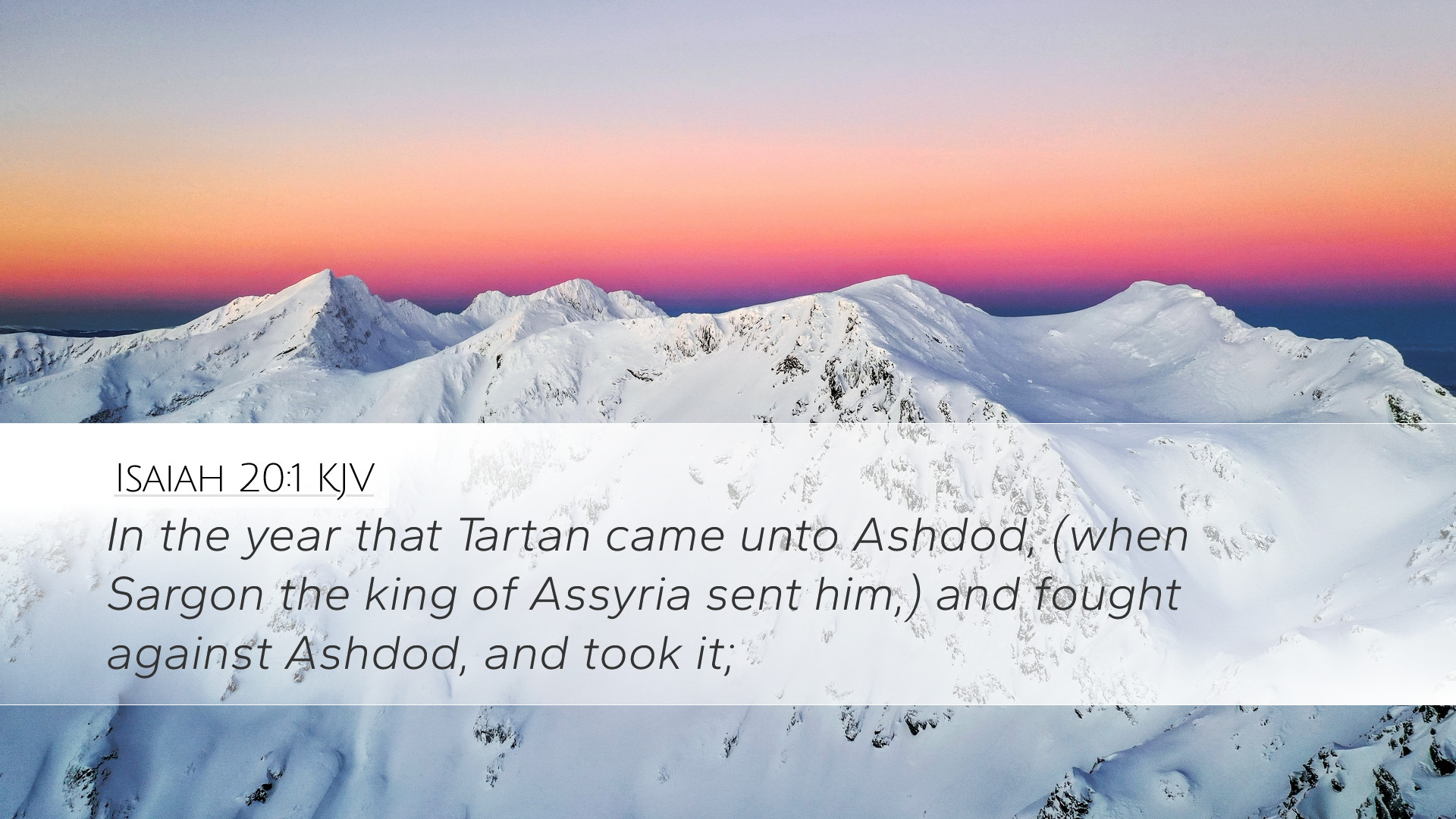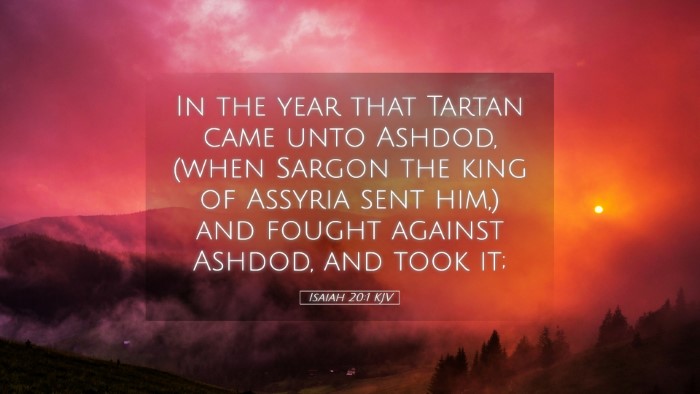Commentary on Isaiah 20:1
Text of Isaiah 20:1 (KJV): "In the year that Tartan came unto Ashdod, when Sargon the king of Assyria sent him, and fought against Ashdod, and took it."
Introduction
The verse under consideration is pivotal in the context of Isaiah's prophetic ministry. It situates the prophetic action within a specific historical event— the siege of Ashdod by the Assyrian king Sargon. Understanding this context is crucial for theological reflection and application.
Historical Context
The incident refers to a time when the Assyrian Empire, under Sargon II, was expanding its influence, threatening the smaller states of the region. The mention of Tartan, a title for an Assyrian military commander, signifies the seriousness of the assault on Ashdod, which was a significant Philistine city.
- Assyrian Dominance: The Assyrians were known for their brutal military tactics and rapid expansion. This verse highlights the political instability of the period.
- Philistine Resistance: Ashdod represents the struggle of the Philistines against a much greater power, emphasizing the geopolitical struggles of the time.
Theological Insights
The passage reflects the sovereignty of God in the midst of tumultuous events. Isaiah's prophetic call during this time serves as a reminder that God's overarching plan prevails despite human actions.
- Divine Sovereignty: God directs the course of history. As Sargon and Tartan seek to conquer Ashdod, God is still in control, raising up prophets like Isaiah to deliver His messages.
- Judgment and Mercy: The fall of Ashdod symbolizes divine judgment against Philistine idolatry, yet offers an opportunity for repentance and turning back to Yahweh.
Insights from Commentators
Several esteemed commentators provide additional insights that enrich our understanding.
Matthew Henry
Henry highlights the embedded lessons of humility and reliance on God found within the political turmoil. He notes that the Assyrian invasion serves as a choreographed part of God's judgment, calling people to return to true worship.
Albert Barnes
Barnes expounds that the historical details serve not only to anchor Isaiah’s prophecies in reality but also illustrate God’s ability to use even foreign nations to enact His purposes. He draws attention to the significance of God's communication through Isaiah as a beacon of hope in times of despair.
Adam Clarke
Clarke discusses the military strategies of Assyria and the implications of the fall of Ashdod on the surrounding nations. He emphasizes that the event signifies both a physical and spiritual downfall for those who do not adhere to the God of Israel.
Practical Applications
The implications of Isaiah 20:1 transcend mere historical interest and offer profound lessons for contemporary followers of Christ.
- Trust in Divine Providence: Like the people in Isaiah’s time, believers today are called to trust in God’s plan despite the chaos in their lives.
- Preparation for Adversity: The assault on Ashdod serves as a reminder that adversities may come; therefore, spiritual preparedness and reliance on God are paramount.
- Evangelistic Opportunity: As the nations witnessed the fall of Ashdod, it presents an illustration of the church's call to look beyond ourselves and share God's message of hope.
Conclusion
Isaiah 20:1 stands as a powerful testimony of God's involvement in human affairs. The fall of Ashdod under the Assyrian siege not only marks a historical event but also serves as a moral and spiritual lesson for readers throughout the ages. The insights from esteemed commentators encourage deeper reflection on the significance of divine sovereignty, the gravity of sin, and the enduring hope found in God's Word.


